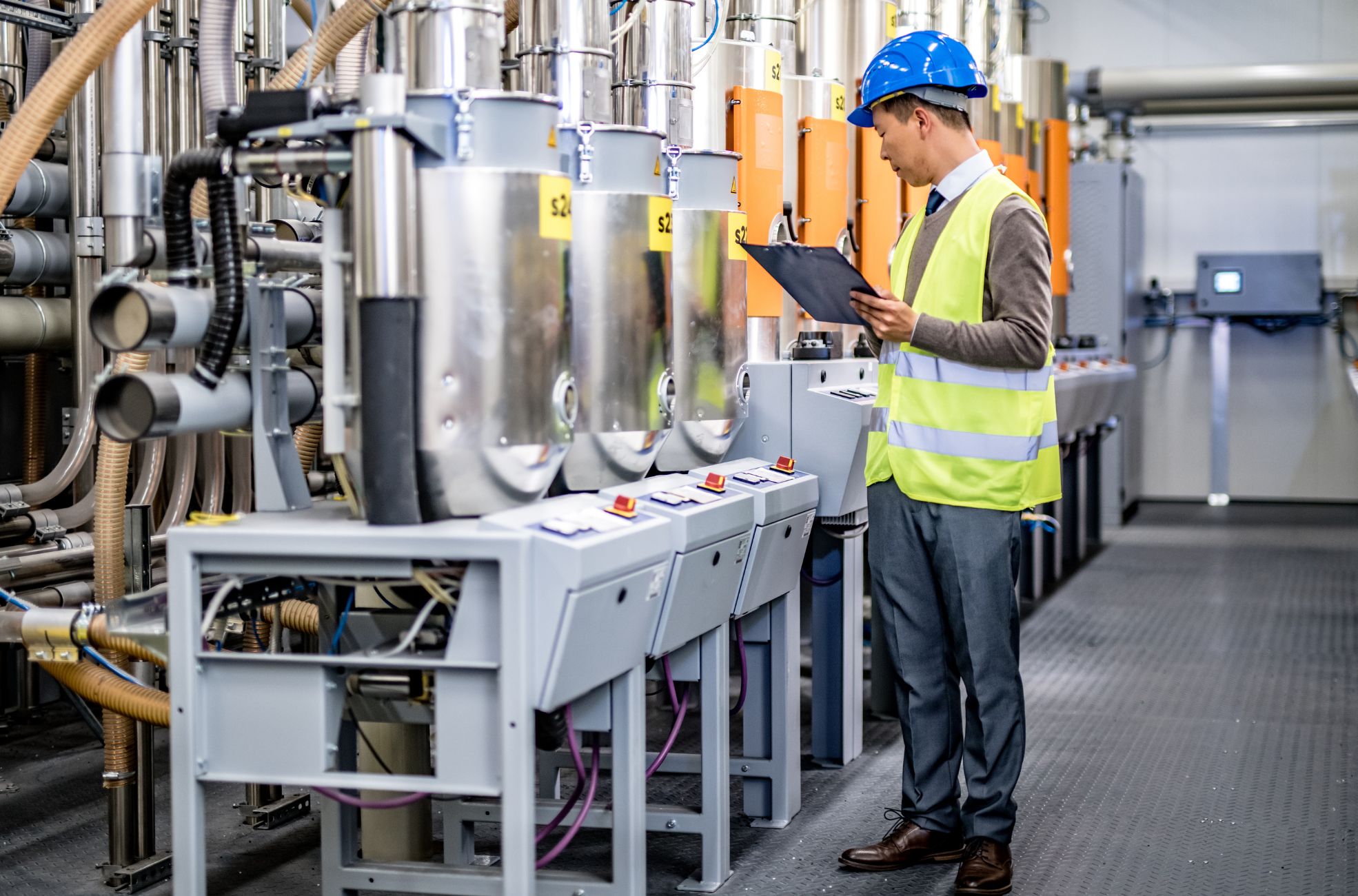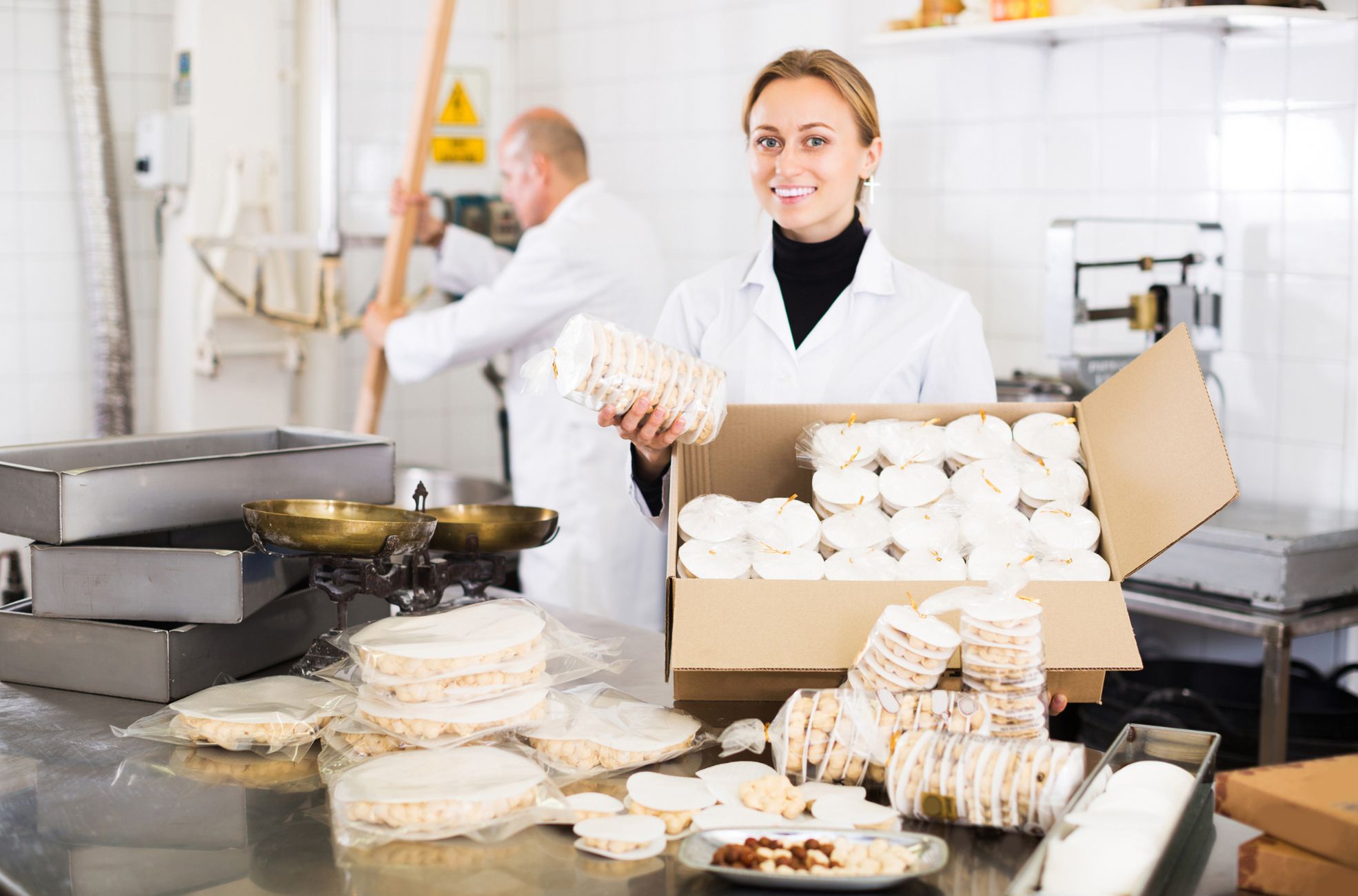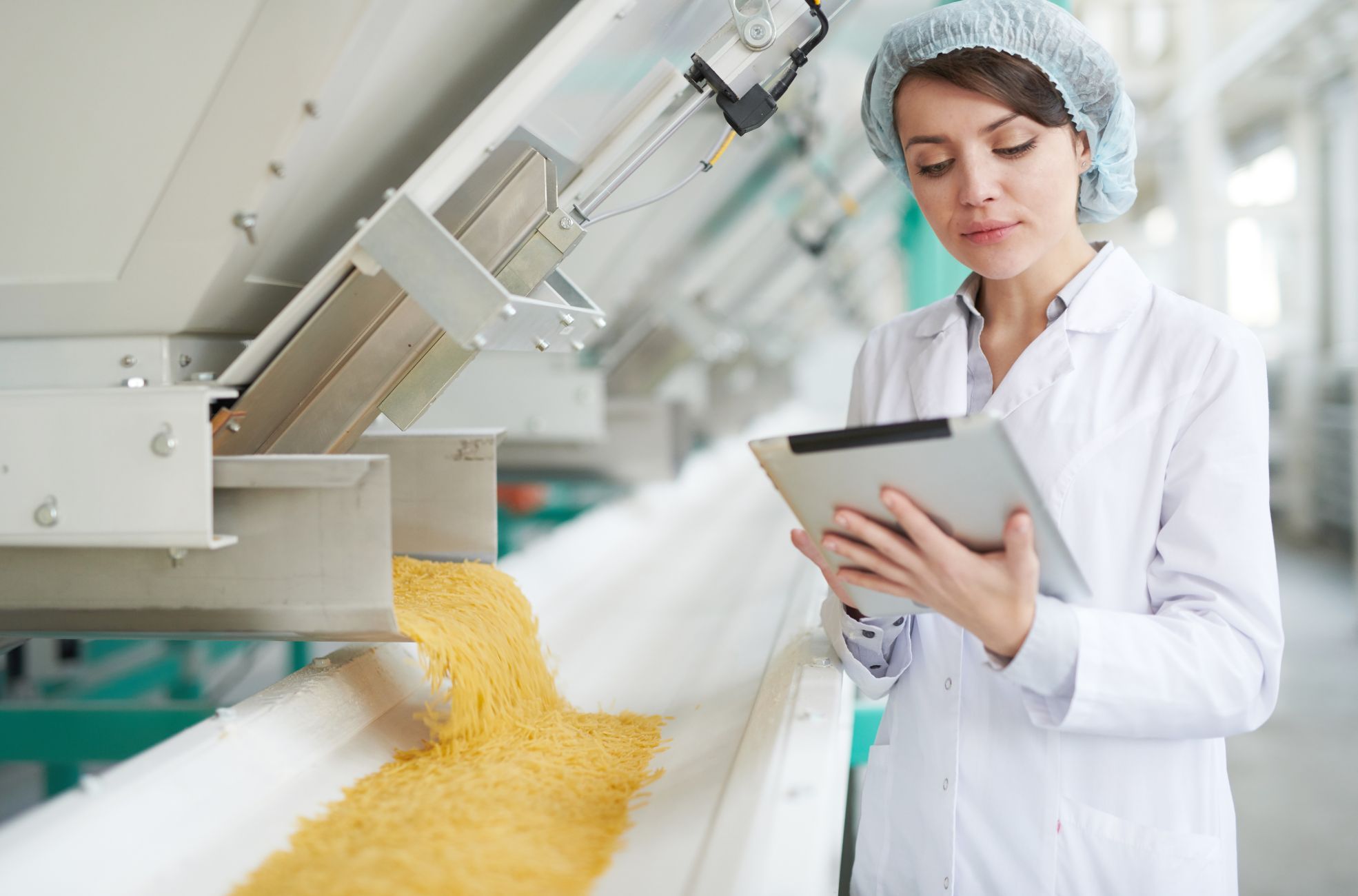Navigating the vibrant landscape of the food manufacturing industry in the UAE reveals an array of companies that are integral to the region’s economic fabric. As a pivotal domain, a food manufacturing company in the UAE caters to local and regional demand and sets trends in the global market. With a focus on innovation, health, and flavour, these five best food manufacturing companies have established the UAE as a formidable player in the Middle East’s food sector.
This sector is characterised by diverse players, from giants delivering dairy and juice products to specialised entities offering gourmet snacks and halal foods. The following article showcases the premier food manufacturing companies in the UAE, highlighting their unique contributions, growth trajectories, and the products that have positioned them at the forefront of the industry.
UAE’s Food Manufacturing Landscape
Growth of the Food Manufacturing Sector
The United Arab Emirates (UAE) has become a standout hub for food and beverage manufacturing, boasting one of the most robust industries in the Middle East. Industry expenditure is set to hit US$44.5 billion in 2023, marking a significant upswing. This is especially noteworthy since the UAE imports over 90% of its food, highlighting the sector’s importance in meeting local demand.
The nation’s wealth is a key factor in this growth, with a GDP per capita estimated at US$41,800 by the end of 2022. This financial prosperity goes hand in hand with a highly urbanised society—86% of the population lives in cities. Such an environment boosts the demand for convenience foods and nutritious snacks, catering to an increasingly health-conscious public.
Moreover, the UAE’s food service industry is booming, fueled by a strong tourism sector. The country has one of the highest densities of restaurants per capita in the world, and full-service restaurant revenues have soared past US$2.3 billion.
As a result, the food manufacturing sector is under pressure to supply a wide variety of products to meet the diverse tastes of a culturally varied population and a thriving restaurant scene.
Key Drivers of the Industry
Several factors are propelling the UAE’s food manufacturing industry. The surge in demand for convenience is clear, particularly in the food and beverage sector, as the residents’ fast-paced urban lifestyle shapes their eating habits. You’ll see this in the growing popularity of non-alcoholic beverages, which have seen double-digit growth, and the high frequency of snacking, with about half of the population enjoying snacks between meals.
Health trends are also making a significant impact, with the pandemic having heightened the demand for healthy, functional, and organic foods and beverages. The high obesity rates, affecting over 30% of the population, further amplify the need for health-oriented foods. This shift towards healthier options is also reflected in the increasing consumer preference for sustainability, with 35% of consumers considering it an important factor in their purchasing decisions.
Even before the pandemic, the sports nutrition segment has been on the rise, indicating a broader interest in health and wellness. The UAE’s status as a cultural melting pot has also led to a demand for a wide range of international frozen food items, which food manufacturing companies are eager to supply.
The UAE’s digital connectivity is another key factor, as it enables food manufacturers to connect with consumers and distribute their products more efficiently. With the Middle East’s Venture Capital industry expected to be worth $5 billion, there’s potential for significant investment in innovative food manufacturing startups.
In terms of market specifics, the Food market in the UAE is projected to grow annually by 5.13% (CAGR 2023-2028), with a revenue of US$37.76 billion in 2023. The largest segment is confectionery and snacks, with a market volume of US$9.34 billion. Despite the modest population of just over 10 million, the per capita food expenditure is among the highest in the world, with the average volume per person in the Food market expected to be 817.50kg in 2023.
These drivers, from health and convenience to cultural diversity and digital connectivity, are shaping the UAE’s food manufacturing landscape into a dynamic and rapidly changing sector.

Leading Food Manufacturing Companies in UAE
Delta Food Industries
Delta Food Industries FZC has emerged as a significant contributor to the UAE’s food and beverage sector from its Sharjah Airport International Free Zone base. The company has diversified its offerings to include tomato paste, milk powder, custard powder, and oats, reflecting its adaptability to consumer preferences.
United Food Industries
United Food Industries has been a prominent presence for over 40 years, with its products becoming household names. Available in over 60 countries, the company caters to a wide customer base through both retail and industrial channels, including a Food Service division that specialises in professional ranges and tailored solutions. United Food Industries also caters to private-label customers with customisable options.
Their flagship brand, Aseel®, has seen substantial growth, particularly in the MENA region. Other brands include Nawar, which focuses on natural and nutritious offerings, and Safi Corn Oil, known for enhancing flavour. Additionally, Mumtaz Oils provides affordable cooking options, Della Terra delivers high-quality frozen foods, and SuperSun is an oil brand designed for various cooking needs.
Dubai Refreshment
Dubai Refreshment has been a prominent franchise and distributor for PepsiCo. in the UAE since 1962. Their facility in Dubai Investment Park showcases their commitment to quality, with a daily production capacity of over 200,000 cases and adherence to FSSC 22000 standards. Their excellence in manufacturing has been recognised with the Gold Quality Award from PepsiCo.
Gulf Processing Industries
Gulf Processing Industries LLC, known by the brand name Herman, benefits from its strategic location in Dubai Investment Park (DIP)-1 to enhance its operational efficiency and regional distribution.
National Food Industries
National Food Industries has been associated with the “LUNA” brand since 1977, offering a selection of milk products and canned foods that have stood the test of time in terms of quality and consumer satisfaction.
Hunter Foods
Hunter Foods, established in 1985 in the Jebel Ali Free Zone, has expanded its reach in the snack food market. The company’s product line includes Safari, Aladin, and Ali Baba, which appeal to various preferences. Their Hunter’s Gourmet line targets the gourmet and health-conscious snack segments with better-for-you options and superfoods.
AL ISLAMI FOODS
AL ISLAMI FOODS has carved out a significant niche in the UAE market with its array of chicken, meat, and seafood products. Beyond production, the company ensures the widespread availability of its offerings. Their Al Islami Kids Club initiative underscores their commitment to social responsibility.
BEST FOOD INDUSTRIES
BEST FOOD INDUSTRIES, with over 40 years of history, is recognised for its nuts, dates, and chocolates in the Middle East. Participation in international food exhibitions like Gulfood demonstrates their global aspirations. The company has expanded its selection to include a flavoured mix of nuts, peanuts, and corn with distinctive tastes. Their “Go Nuts” line of portable snacks is a testament to their innovative approach in the snacking sector.

Best Manufacturing Companies For Dairy And Juices
AL RAWABI DAIRY COMPANY
Al Rawabi Dairy Company, established in 1989, has grown to be the UAE’s largest dairy, with a processing capacity of 275,000 litres of dairy products and 150,000 litres of juices per day. The company has been a pioneer in the Middle East, leading the adoption of innovative practices in health, hygiene, and safety standards, as well as animal welfare, to ensure the production of high-quality products.
The company was the first in the UAE to introduce milk in plastic bottles, which allowed them to capture a significant portion of the market. Their foray into the juice market has also been successful, providing a buffer against fluctuations in the dairy industry. They were pioneers in offering larger milk containers, catering to the diverse requirements of their customer base.
Al Rawabi has also been at the forefront of product innovation, with offerings such as Super Milk, Nutree Boost, and Vitamin D-fortified milk reflecting their commitment to public health. Their dedication to research and development is evident as they consistently seek expert advice to develop products that align with market demands.
Aiming to expand its brand across all GCC countries and become a MENA brand, Al Rawabi is on a path to becoming a comprehensive food company with a varied product portfolio. Their slogan, “Nation’s Health,” encapsulates their mission to provide products that contribute to a healthy lifestyle.
Their product lineup includes:
- Full cream and low-fat fresh milk.
- Laban with probiotics.
- A variety of cheeses, such as Mozzarella and Halloumi.
They also offer a range of creams for culinary use. Starting with 500 imported cows, Al Rawabi now serves over one million customers daily, managing over 16,500 cattle with a focus on public health. Their farm in Al Khawaneej is open for educational tours, offering insights into the history and production process of dairy farming.
AL AIN FARMS
Al Ain Farms, established in 1981 by the late Sheikh Zayed Bin Sultan Al Nahyan, is the UAE’s first dairy company. As the largest integrated dairy company in the UAE, Al Ain Farms operates five farms that span dairy, fresh juice, camel milk, and poultry production. They utilise international technology for feeding, milking, and processing, positioning them among the most advanced farms in the region.
The company places customer satisfaction and quality at the heart of its operations, as evidenced by its introduction of recyclable PET packaging and the receipt of the Sheikh Khalifa Excellence Award. Their dairy processing plant, with a capacity of 100,000 litres of milk per day, has been awarded HACCP certification, underscoring their commitment to quality.
With a herd of nearly 15,000 pedigreed cows, Al Ain Farms upholds high standards of animal welfare. They ensure that all milk is naturally produced without antibiotics or hormones. The automated milking process, which is entirely hands-free, guarantees the highest levels of hygiene. To maintain the freshness of their milk, it is pasteurised, chilled, and transported in temperature-controlled vehicles.
What is the Food Safety Law in the UAE?
The Federal Law No. 10 of 2015 on Food Safety, enacted by the late H. H. Sheikh Khalifa bin Zayed Al Nahyan, is the cornerstone of the UAE’s food safety regulations. It prescribes rigorous standards and rules to safeguard health and consumer interests across the entire food supply chain.
This legislation mandates strict control over the importation of food. All new food products must receive approval from the Ministry of Climate Change and Environment before entering the UAE, ensuring compliance with national safety standards. Violations of food safety can result in severe penalties, including imprisonment and fines up to US$136,000 for unauthorised handling of products containing pork or alcohol or their by-products.
The law takes a strong stance against food misrepresentation. Penalties for false advertising or misleading labelling range from US$2,730 to 27,230. Additionally, the Ministry of Economy is authorised to impose fines for various infractions, with specifics outlined by the Cabinet.
The National Food Accreditation and Registration System, introduced by Ministerial Decree No. 239 of 2018, requires the registration of all food products on a smart platform before distribution in the UAE. This includes a thorough review of labels, ingredients, and composition.
The National Rapid Alert System for Food, established in 2017, is a key mechanism for addressing serious food risks. It outlines procedures for managing alerts and categorises incidents based on their impact.
Personal food imports are permitted within certain limits and must adhere to stringent labelling and documentation requirements.
The UAE also aligns with international standards by adhering to the World Trade Organization’s SPS Agreement, which provides guidelines on food safety and health measures for animals and plants.
At the local level, the Abu Dhabi Agriculture and Food Safety Authority is responsible for food safety in Abu Dhabi, while municipal authorities in Dubai and Sharjah conduct inspections and enforce regulations, including correct labelling and monitoring expiry dates.
These comprehensive measures reflect the UAE’s commitment to maintaining exemplary food safety standards and protecting the well-being of its population and the integrity of its food supply.

FAQs
What food products are produced in the UAE?
Aside from the significant importation of food, the UAE also has a thriving agricultural sector that produces a variety of commodities. In 2019, the country’s farms yielded more than 300,000 metric tons of dates, making it the most abundant locally-grown food product. Other notable crops include cucumbers and tomatoes, with the nation’s output featuring over 50,000 metric tons across six different food commodities.
Which food brand is famous in the UAE?
Several brands have established strong reputations within the UAE. Al Islami Foods, founded in 1981 in Dubai, is renowned for its halal meat and extensive range of frozen food products, including chicken items, burger patties, franks, nuggets, seafood, vegetables, fruits, and French fries.
Bayara has also carved out a niche for itself in the MENA region, becoming a preferred choice for spices and snacks.
What Does the UAE Manufacture Most?
The manufacturing sector in the UAE is varied, with a particular emphasis on food production. Dairy products are a significant part of the manufactured goods, with companies like Al Rawabi and Al Ain Farms being prominent producers.
The industry also produces a substantial amount of juices and poultry products. Other manufactured items include tomato ketchup, sterilised cream, evaporated milk, hot sauce, cornstarch, full cream milk powder, and a variety of snack foods.
Who is the Largest Food Manufacturer in the UAE?
Identifying the largest food manufacturer in the UAE is challenging due to the presence of multiple influential companies. Emirates Food Industries is a leading entity, managing two of the largest standalone dairy farms in the Middle East.
Unikai Foods has a broad distribution network across the MENA region. Global Food Industries, a subsidiary of the Albatha Group in Sharjah, is a key player in the frozen food sector with a diverse range of seafood, meat, poultry, and vegetable products.
United Foods Company is also a significant contributor to a wide array of products, including oils, fats, water, and beverages. Companies like Hunter Foods and National Food Industries also contribute to the UAE’s reputation as a centre for food manufacturing.
Securing the Future Plate
With a vibrant spectrum of companies leading the charge, the UAE’s food manufacturing industry exemplifies innovation and excellence. These organisations are not only pivotal in satisfying the nation’s appetite, but Still, they are also key players in the global food market, crafting a legacy of quality, variety, and sustainability for generations to come.
The industry’s trajectory, marked by technological advancement and consumer-driven trends, ensures that the UAE will continue to be a significant gastronomic hub. Whether it’s the luscious dairy produced by Al Ain Farms or the savoury snacks from Hunter Foods, the region is setting high standards for food manufacturing.
For those who venture into the UAE’s food sector, it’s clear that the blend of tradition, innovation, and stringent safety standards will continue to foster a fertile ground for growth and opportunity.









